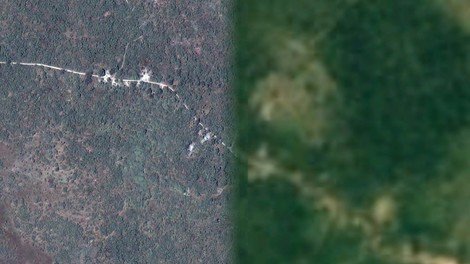Your podcast discovery platform
Curious minds select the most fascinating podcasts from around the world. Discover hand-piqd audio recommendations on your favorite topics.

piqer for: Boom and bust Global finds
I am a Dutch journalist, writer and photographer and cover topics such as human rights, poverty, migration, environmental issues, culture and business. I’m currently based in The Hague, The Netherlands, and frequently travel to other parts of the world. I have also lived in Tunisia, Egypt, Kuwait and Dubai.
My work has been published by Al Jazeera English, BBC, The Atlantic's CityLab, Vice, Deutsche Welle, Middle East Eye, The Sydney Morning Herald, and many Dutch and Belgian publications.
I hold an MA in Arabic Languages and Cultures from Radboud University Nijmegen and a post-Master degree in Journalism from Erasmus University Rotterdam. What I love most about my work is the opportunities I get to ask loads of questions. Email: [email protected]
More Maps To Improve The Economy And Avoid Diseases
— The thing about Stone Town in Zanzibar is that it’s easy to get lost. How do you find your way?
— The way you go is the way you should go back.
In this episode of Business Daily, “The daily drama of money and work from the BBC”, presenter Katie Prescott dives into the topic of maps in Africa.
While I'm personally sometimes quite fed up with my smartphone, I’ve probably become too much used to the convenience of Google Maps. However, in some countries, digital maps are hardly used. Something I, for example, noticed when I lived in Tunisia until two years ago, where few people own a smartphone and aren't used to reading maps. They don’t meet at addresses but at landmarks, like a certain café or shop.
Besides, from this podcast I learned that according to the UN only 3 percent of Africa is mapped accurately and up to date, showing all the buildings, roads, waterways — as opposed to 87 percent of Europe.
If you create digital mapping and you use it, your GDP increases by .2–.6 percent. That’s hundreds of millions of dollars, even in small countries.
Speaking is John Kedar of Britain's Mapping agency Ordnance Survey. There is an economic case for doing it, he explains, and a social case as well. In Tanzania, for example, everyone must live within 400 metres of a clean water source.
Zanzibar planning minister Muhammad Juma launched an ambitious mapping program together with the World Bank in 2016. The data can help him make decisions about housing, infrastructure and, for example, rubbish collection.
Of course, navigation company Tom Tom would like to map more parts of Africa as well. However, vice president Arnout Desmet says:
A lot of the data are non-existent, outdated or only available on paper. Many governments are also quite reluctant to share these data.
Interestingly, as we can hear at the end of this podcast, mapping can even be an effective weapon in the fight against diseases, like cholera in Zanzibar.
